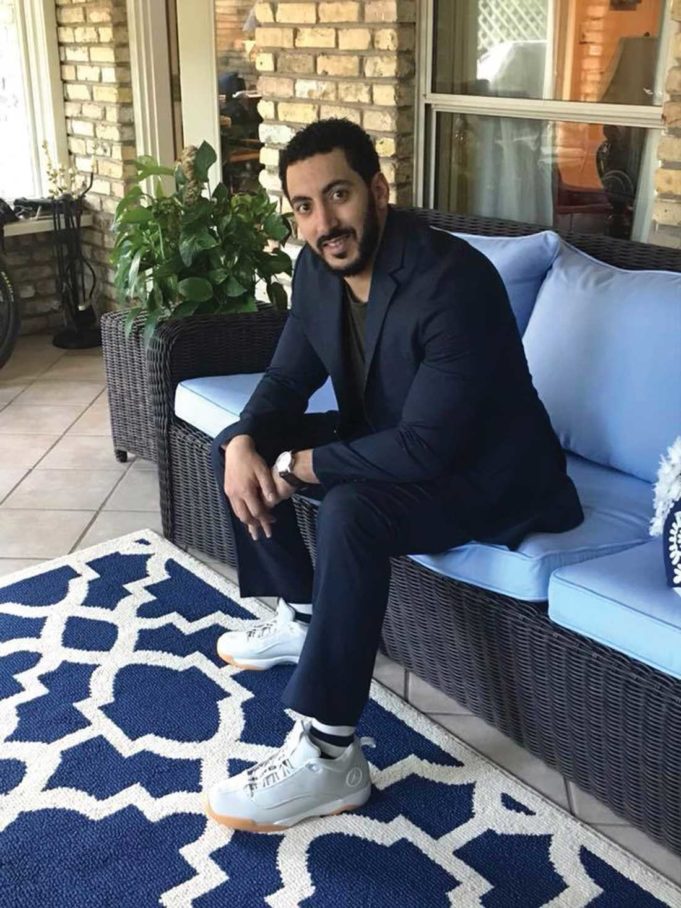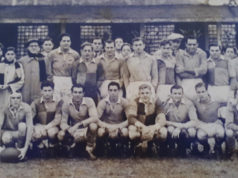The City of Fort Worth is coming after Varsity Tavern.
After we wrote the initial story about allegedly racist dress-code enforcement issues at the popular West 7th-corridor nightclub (“Varsity Tavern Blues,” April 6) – 10 days before the Star-Telegram posted its similar report – one of the aggrieved took the next step: He filed a complaint with the city.
“I filed it because I felt like I had a duty: finishing the job,” said Sam Sayed.
Once a complaint is filed, the city is obliged by ordinance to “facilitate a resolution by informal methods of conference, conciliation, and persuasion,” said City Attorney Sarah Fullenwider.
Sayed said the city has not followed up with him yet.
However, the 32-year-old former Fort Worth resident has spoken with Varsity’s lawyers, who allegedly described Sayed’s experiences as “neglecting to enforce a rule uniformly,” Sayed said.
Sayed said he countered that the problem is the rule itself. “No basketball shoes” – as it’s indicated by the dress code hanging by the main entrance – is inherently racist, he believes.
“Look at the people who buy Jordans,” Sayed said. “The overwhelming majority of them are minorities, so people are subjected to racism long before they get in line.”
When allegedly asked by the lawyers for his ideal outcome, Sayed said he would first consult with local social activists to develop a long-term plan for not only Varsity but some of the other area clubs against which similar claims have been made over the past several years.
“Hopefully, it leads to reform of some sort at Varsity and spills into the rest of the staff meetings all over 7th,” Sayed told me in an earlier conversation.
Varsity could not be reached for comment but on April 17 posted a kind of apology on Facebook that read, in part, “We were saddened to learn there were people who felt they had been discriminated against when they were turned away based on our dress code. … Racial discrimination is something we, as a diverse family ourselves, take very seriously and absolutely do not tolerate or condone.”
As of Tuesday, May 1, 15 complaints have been submitted, said Angela Rush, Human Relations administrator for the city. One, Sayed’s, has been signed, meaning a notice has been sent to all of the concerned parties. Another has been drafted but not yet signed.
The job that Sayed intends to finish started on March 30. That’s when he did a little Facebook posting of his own, recalling two troubling experiences he endured at Varsity within days of each other. The first was on a Thursday night, when his African-American friend Stephen was denied entry for wearing joggers, slim and stretchy pants that can be dressed up or down. Sayed, also wearing joggers but different colored ones, was allowed in without any hassle. Sayed is Egyptian and light-skinned.
The second was that Saturday, when Stephen (who wishes to remain anonymous to protect his privacy) was barred from the club for wearing Air Jordan 3s – it was Sayed’s idea for Stephen to switch shoes with one of their white friends. The white friend, now in the Jordan 3s, and Stephen, now in boat shoes, gained entry without any questions.
After living in Fort Worth for six years, Sayed now resides in Philadelphia, where he attends a master’s medical program at Drexel University, but he has a 10-year-old daughter back here. “Anytime I can fly home to see my daughter, I’m going to do it,” he said. “Let’s just say I overstayed this time [to file the complaint]. I missed school.”
Another reason Sayed made the complaint a priority in his life is Stephen, a close friend and a fellow classmate at Drexel.
“Seeing him that night and what it did to him, it was so surreal to me. I felt I had to come back and file the complaint, so the process of doing something about it would be underway, especially from the city standpoint,” Sayed said, adding that after the publication of our story and the one in the Star-Telegram, he received “so many” messages from people thanking him for speaking out.
“I felt like I had a duty to them, too, to really file this complaint,” he said.
To file the complaint, he had to offer his version of events in person at the city’s Human Relations Office and on a form check the box “discrimination based on race.”
Once the process begins, he said, he will be able to provide more evidence against Varsity, one of the highest billing bars not only in Fort Worth but the entire state, ringing up between $300,000 and $600,000 a month.
“At the end of the day, I’m a student, not an activist,” Sayed said. “I want the dress code to be overhauled, yes, but one thing I’m not going to get over is the leadership [at Varsity]. I don’t think it’s an accident there’s a racist rule to begin with.”












